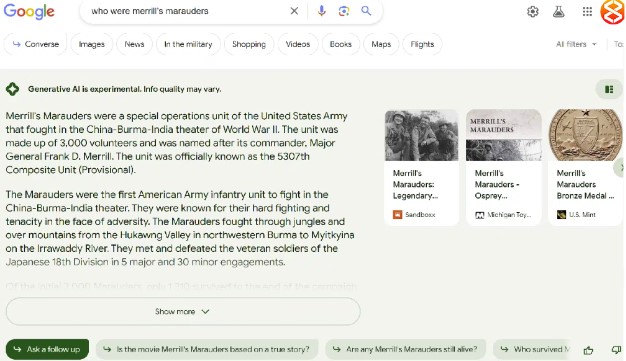Tis the season in which search marketers begin to catch their breath from the whirlwind of changes throughout the year and start to look ahead to what the new year will bring. Or more accurately, WWGDN (what will Google do next).
This year’s SEO predictions are tinged with apprehension as search marketers anticipate one of the biggest changes to search results in recent years – SGE (Search Generative Experience). Yes, AI search results are coming in 2024. Want to know more about SGE? Read our catch-up articles here:
Google has recently announced that beta testing has rolled out to several additional countries as the rollout ramps up. By all accounts, it seems that the full rollout is likely to arrive at some point in 2024 and could prompt a complete shift in how we ‘optimise’ websites in response to a change in search behaviour.
So what new opportunities does this change bring and how do you get ahead of your SEO strategy in 2024?
It’s clear that Google will produce its own AI answers to the majority of queries. What’s not yet clear is if Google will ‘link’ to references used to generate its answers. In recent testing, Google revealed a number of ways that it could link to websites as references with AI answers, which is promising news for webmasters. Google has also introduced three reference articles for users to find out more:

This means that the the traditional first position is pushed further down search engine results, meaning the new opportunities for clicks are in the reference inks in the AI answers themselves as well as the three results listed above.
It’s unclear at present how site owners rank in these positions, but one thing for sure is that you’ll need to be in it to win it. This means if you don’t have content that answers users’ queries for Google to rank – you’ll likely have minimal search visibility.
Start 2024 by reviewing your content and ensuring it has the most value to users. Creating quality content that offers genuine ‘help’ to your users never goes out of fashion and could increase your chances of gaining clicks in the new world of SGE.
SGE will be able to understand and provide ultra-specific results to ultra-granular searches. It’s always been Google’s end goal to provide answers to even the most specific of questions and AI automation takes a step in this direction.
In various demonstrations of SGE, the ultra-long tail searches are where SGE came into its own. Google’s language models can understand nuances and complex language with much more clarity.
Does your content offer as much detail as possible to be able to rank for very specific terms? For example, if you’re running an e-commerce store and users are searching for:
“What is the best bag for kids aged 7 and 10 that is secure and waterproof but also lightweight.’
Do your product pages include information about the durability, water resistance and weight of the bag as well as suitability for children? To give yourself the best chance of ranking for these ultra-granular phrases, include as much detail in your content as possible.
With AI tools able to churn out informative content in 10 minutes, there has likely been an influx in AI content for Google to sift through and decide which page is worthy of ranking. When supply is plentiful, value decreases. So how can you ensure that Google and users see your content as valuable and worth consuming? That’s where ‘brand’ is so important.
Think about it this way. If Google has to crawl thousands of pages for one query, all of similar content depth, how can Google decide who should rank for the phrase?
Google is likely to rely on other ‘EEAT’ signals to figure out ‘who’ is writing the content. Established brands that clearly demonstrate expertise and authority over time will be the biggest winners.
Focus on convincing users why they should trust your brand and its content. This means putting your people at the forefront of your website thought detailed meet the team pages, author bios and expert opinions. It also means showcasing your reviews, case studies, authoritative articles and expert pieces.
Search engines like Google assess the authority of a website or content based on various factors, one of which is topical relevance. Identify all of the queries that your users are asking about your specific subject matter and then make efforts to cover those subjects in their entirety on your website. Remember that Google may also review how long you’ve covered your subject – so best to get started as quickly as you can.
In conclusion, as we gaze into the future of SEO in 2024, the landscape appears to be undergoing a seismic shift with the advent of AI-driven search results, specifically the much-anticipated SGE (Search with Google’s AI). As we brace ourselves for this transformative change, it becomes evident that adaptation and strategic planning will be key for marketers seeking to thrive in the evolving digital ecosystem.
Do you have an SEO plan for 2024?
Get in touch to find the perfect package for you